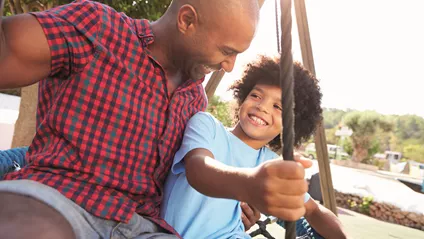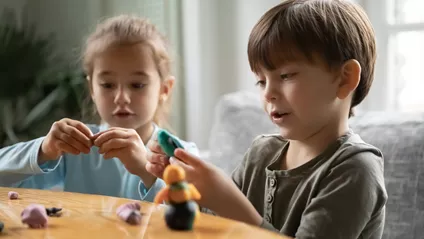As well as the physical changes, there’s a big emotional shift too as they become more aware of the world and their place within it. They begin to question, rebel and strive for independence.
For many teenagers in foster care, they’re having to deal with all this, as well as their own unique anxiety, anger or sense of isolation caused by what may have been years of abuse or neglect. Whatever their past experiences though, teenagers in foster care present a very special challenge at a critical and formative stage in their lives.
As a foster parent of a teenager, your role is to help them deal with all these issues and prepare for independence and adulthood. This includes encouraging their educational and social development and the learning of practical life-skills. You’ll also make sure they keep in regular contact with their birth parents. It’s a big ask with many ups and downs, but that’s what makes the work so satisfying. Helping someone transition successfully to independence is one of the most rewarding things any foster parent can do.
Allowances for fostering teenagers
Our fostering allowance covers all that you need to care for a teenager, you’ll receive regular payments and allowances for the time a teenager is in your care.

Think you’d make a great foster parent?
Whether you’re ready to start your journey or just want to chat to an expert, we’re here to talk.
Enquiry
The company takes the requirements of GDPR seriously in ensuring the privacy and lawful processing of personal data provided to us by you. Please view our privacy notice which explains how the company will manage and use your personal data. This site is protected by reCAPTCHA and the Google Privacy Policy and Terms of Service apply.
Frequently asked questions
Will foster children have difficult behaviour?
Many of the children we care for have suffered trauma in their young lives due to abuse, neglect or witnessing domestic violence. Children can find it very difficult to regulate and express their emotions so instead this can come out in their behaviour. Children maybe angry and become aggressive, or can be just the opposite and be very withdrawn. Every young person is different and will behave differently. It’s also worth noting that not every child presents with difficult behaviour and all of our foster parents experience these challenges differently too. What can be difficult to manage for one family will be much easier for another, which is why matching is so important to us. We provide all of our fostering families with training, to help them understand the reasons for certain types of behaviour and how to manage it. By far the most rewarding part of being a foster parent is seeing the changes a child or young person makes whilst in your care.
How does the matching process work?
We receive far more referrals for children from local authorities than we have fostering families with vacancies. In order to match a child to a family, we look at a number of things including location, age range and gender. We also look at the cultural needs of a child and a families own make up and experience. We request as much information from the local authority about the child they are looking to place, so we know as much about them as possible to ensure our foster parents can meet their needs.
Can I foster more than one child?
Yes you can. Foster parents can foster up to 3 foster placements. This can be more than 3 children if one placement is a sibling group. How many children you foster often depends on your bedroom capacity as well as your ability to care for more than one child. Foster children need a bedroom of their own, the only exception to this is same sex siblings, which can share a room if the room is large enough for two.
Other types of fostering

Emergency fostering
Children often enter the care system at very short notice, and usually when there’s been a crisis at home. Emergency foster parents are on stand-by for these occasions. Emergency fostering is usually short term but can develop into longer placements.

Short term fostering
This usually means anything from a few days up to two years, and usually involves plenty of contact with the child’s birth family while plans are put in place to get them back together.

Long term fostering
Typically this means two years and over, and usually until the child reaches the age of 18. It’s usually because they don’t wish to be adopted or aren’t able to return to their birth family – although they often stay in contact.

Fostering siblings
Here foster parents take on brothers and sisters together, improving their experiences and long term life chances. It demands more time and space and for this reason there’s a national shortage of foster parents for siblings.

Sanctuary-seeking fostering
More unaccompanied children are reaching the UK than ever, and all face an uncertain future in an unfamiliar country. There’s a real need for foster parents who speak their language and understand their culture.

Parent & child fostering
This is a truly specialist role, involving the short term support of a pregnant young mum, but not exclusively. These placements help parents to learn vital parenting skills.
